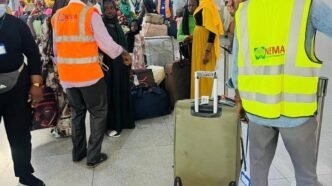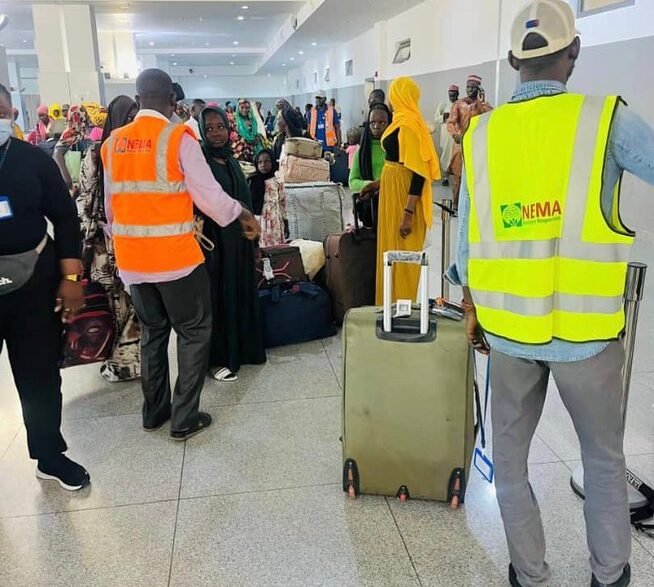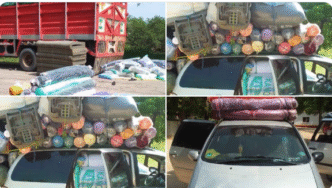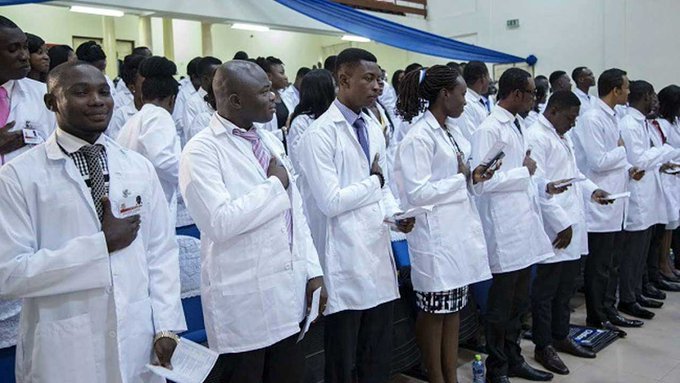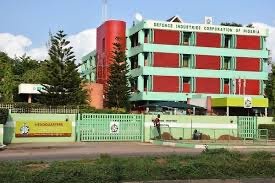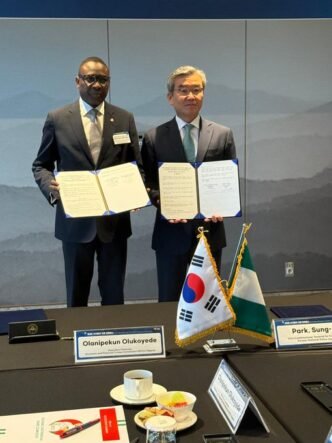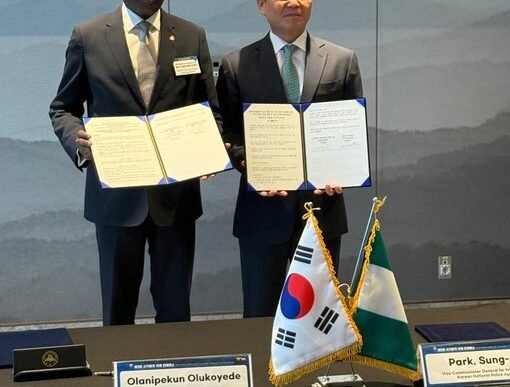The National Emergency Management Agency (NEMA) has welcomed 148 Nigerian returnees from Sudan, continuing the Federal Government’s humanitarian mission to rescue and reintegrate citizens stranded in crisis-hit countries.
The arrival of the returnees at the Mallam Aminu Kano International Airport underscores Nigeria’s determination to safeguard the lives and dignity of its people, no matter where they are in the world.
Safe Arrival in Kano
According to NEMA officials, the 148 returnees, comprising men, women, and children, were received on Thursday evening after being evacuated from Sudan. The evacuees were transported with the support of humanitarian partners and security operatives, ensuring a safe and orderly process.
On arrival, the returnees underwent screening, medical checks, and documentation by officials from NEMA, the Ministry of Foreign Affairs, and immigration authorities. Temporary accommodation, food, and basic necessities were also provided as part of the immediate relief support.
Government’s Ongoing Repatriation Efforts
This latest evacuation exercise is part of a larger national strategy to bring home Nigerians who have been trapped in Sudan due to ongoing conflict and humanitarian challenges in the North African nation.
A senior NEMA official, who coordinated the reception in Kano, noted that the government remains committed to safeguarding the lives and welfare of Nigerians abroad, especially those caught in conflict zones.
He emphasized that the returnees were not just being brought home but would also benefit from reintegration support to help them restart their lives in Nigeria.
The Plight of Nigerians in Sudan
Sudan has been battling prolonged political instability, armed conflict, and economic collapse, which has forced thousands of people, including Nigerians, to flee. Many of those stranded in Sudan were students, traders, and professionals whose livelihoods were disrupted by the unrest.
Several Nigerian returnees narrated that they faced shortages of food, water, shelter, and healthcare during the height of the crisis, with many living in constant fear of violence.
One of the returnees, a young student, expressed relief and gratitude to the Nigerian government for facilitating their return, saying:
“We went through very difficult times in Sudan. Many of us had no idea how we would get out. But today, we are grateful to be back home alive and safe.”
Humanitarian Support and Reintegration Plans
Beyond evacuation, NEMA and its partners have put in place structures to help returnees reintegrate into society. These include:
- Medical assistance for those with health needs.
- Temporary shelter and feeding before they reunite with families.
- Counselling and psychosocial support for those traumatized by the crisis.
- Vocational training and empowerment opportunities to help them regain financial stability.
The Federal Government is also working closely with state governments to support returnees in their various home communities.
International Partnerships in the Evacuation Mission
Nigeria’s evacuation from Sudan has been made possible through collaboration with international humanitarian organizations, regional partners, and foreign governments.
The Nigerian Embassy in Sudan, the Ministry of Foreign Affairs, and agencies such as the International Organization for Migration (IOM) have played crucial roles in coordinating safe passage and logistics.
This partnership underscores Nigeria’s diplomatic strength and humanitarian commitment, ensuring that citizens abroad are never abandoned in times of crisis.
Previous Evacuation Batches
Since the Sudan crisis escalated, Nigeria has successfully carried out multiple evacuations of stranded citizens. Earlier batches saw hundreds of Nigerians—mostly students—airlifted to Abuja and Kano.
With the arrival of this new group of 148, the number of Nigerians safely repatriated continues to rise, showing the scale and consistency of the Federal Government’s intervention.
Security and Welfare at the Center of the Mission
Officials at NEMA emphasized that security was a top priority throughout the evacuation process. The agency worked hand-in-hand with the Nigerian Immigration Service, security forces, and health professionals to ensure that returnees arrived safely and were not exposed to additional risks.
Furthermore, COVID-19 and other infectious disease screenings were conducted to protect both the returnees and the host communities.
Voices of Relief from Families
Families of the returnees expressed joy and relief as their loved ones arrived in Kano. Many had spent weeks without proper communication, fearing the worst as news of violence and unrest in Sudan spread.
One parent waiting at the airport shared his gratitude:
“I cannot explain how happy I am today. I was losing hope of ever seeing my daughter again. But thanks to the government and NEMA, she is home and safe.”
NEMA’s Role in Humanitarian Response
The National Emergency Management Agency has been at the forefront of managing disasters and emergencies affecting Nigerians both at home and abroad.
In the case of Sudan, NEMA has played a multifaceted role—coordinating evacuations, providing relief supplies, and ensuring smooth reintegration.
This operation demonstrates the agency’s ability to adapt to complex humanitarian emergencies that extend beyond Nigeria’s borders.
Nigeria’s Broader Commitment to Migrants Abroad
Nigeria has one of the largest diaspora populations in Africa, with millions of citizens working, studying, and living abroad. While migration has its benefits, crises such as the one in Sudan highlight the vulnerabilities migrants face.
The Federal Government, through agencies like NEMA and the Ministry of Foreign Affairs, continues to prioritize the protection and dignity of Nigerians abroad.
Officials reaffirmed that no Nigerian will be abandoned in times of distress, and evacuation efforts will continue whenever and wherever necessary.
Looking Ahead
For the 148 returnees, their arrival in Kano marks the end of one painful chapter and the beginning of another filled with new opportunities. With the government’s reintegration plans, they are expected to gradually rebuild their lives.
The evacuation also serves as a reminder of Nigeria’s responsibility to its citizens and the importance of humanitarian diplomacy in protecting vulnerable populations.
Conclusion
The safe return of 148 Nigerians from Sudan is a clear demonstration of the Federal Government’s commitment to the welfare of its citizens, both at home and abroad.
Through the efforts of NEMA, the Ministry of Foreign Affairs, and international partners, stranded Nigerians have found hope and safety. With reintegration programs in place, the returnees are now on the path to recovery, proving that even in the face of conflict and uncertainty, Nigeria stands by its people.
The Sudan evacuation mission remains one of the most significant humanitarian interventions of the present administration, reinforcing Nigeria’s position as a country that values the lives and dignity of its citizens, wherever they may be.

